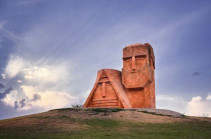
30/06/2014 12:33
Iraq KRG moves against Kurdish people – Sami Ramadani
Press TV has conducted an interview with Sami Ramadani, a professor at London Metropolitan University, to discuss the situation in Iraq.
Press TV: Your take on what [previous guest speaker, Mr. Othman] Ali has said, that basically this is traditionally a Kurdish area, and regarding the resolution as far as the constitution that it’s the Kurds rights, your take, sir.
Ramadani: Well I think these developments are all unfortunate because unfortunately the KRG (Kurdistan Regional Government) leaders, the Kurdistani government leaders, have moved politically and militarily at one of the most difficult moments in Iraq’s modern history.
For the first time there is practically another foreign invasion of Iraq by thousands of terrorists moving into Mosul and down south, and it’s really time for the Iraqi people in general, Kurds, Arabs, Turkoman, other minorities to unite to defeat this terrorist threat.
It is not the time now for the KRG leaders to notice a weakness in…Iraq, to notice a general weakness in Iraqi institutions, to move in and take over the entire – it’s not just Kirkuk, by the way. Practically they have doubled the area under control of the Peshmerga, whether moving into the Mosul areas, the Diyala areas, and the Kirkuk areas.
It is noticeable. All observers on the ground noticed it, especially even in the center of Mosul there was almost a ceasefire between the ISIS terrorists and the Peshmerga forces. That is unfortunate.
In my opinion, this is not in the interests of the Kurdish people.
Press TV: Are you saying that between this group and the ISIL forces, there has been some kind of collusion or collaboration?
Ramadani: Well, there is a defacto ceasefire. All observers have seen it. Apart from small skirmishes, all the friction lines between the KRG forces, the Peshmerga forces and the ISIS terrorists are observing almost a ceasefire. This cannot just come out of the blue especially knowing what these terrorists do in areas they occupy or they border, like they did in Syria in the past two, three years.
Let me stress one very important point. What the KRG leaders are doing is against the interests of the Kurdish people. It is in the interests of the Kurdish people to build the best unity possible with all the peoples of the region. To rely on the support of the United States and practically of Israel now with the export of oil from Kurdistan and so on, is not going to be in the long-term in the interests of the Kurdish people.
Press TV: Your take in general. What we’re looking at, do you think that this has been possibly a pre-planned situation? We see on the one hand that ISIL going in warring style, and at the same time we see a lot of activity taking place. Now all of a sudden we have total control of Kirkuk and Mr. Barzani basically saying it will remain in their hands. Do you see any connections with all of this or not?
Ramadani: In politics you look at the results. The first thing that the Barzani leadership did was expand and move into so-called disputed areas. I mean, your guest mentioned “Jalalan” and “Saadiya”. These are historically very, very mixed areas of Arabs, Kurds, Turkoman and so on.
What Barzani is doing really is creating friction with the peoples of the region and that is my point that this is not in the interests of the self-determination of the Kurdish people.
I’m old enough to remember the 1960s and 1970s when gradually under the leadership of the father of…Mr. Mustafa Barzani, they built a very, very close alliance with the United States, and then the dictator of Iran, the Shah of Iran. They became so dependent on the Shah of Iran and the United States.
The Saddam Hussein dictatorship made an agreement with the Shah, with the mediation of Henry Kissinger at the time. Saddam and the Shah of Iran met in Algiers with the mediation of Kissinger, they reached an agreement and they betrayed the Kurdish people and created an enormous setback for the Kurdish people. Barzani had to leave Kurdistan as well.
Through various machinations, Barzani whether under Mullah Mustafa or now under Masoud, they dealt with the dictator Saddam against the patriotic union of Kurdistan and vice versa.
These policies do not serve the long interests of the Kurdish people. The Kurdish people suffered under dictatorship, under chauvinism, under Saddam’s regime – he gassed the Kurdish people. The Kurdish people do not need to rely so totally on the United States and these so-called friends. Now they have even a closer relationship with Saudi Arabia!
These are temporary tactical things that will not help the Kurdish people. They need to unite with the rest of the Iraqi people, with the Iranian people, with the Syrian people, because without such unity it’s only the terrorists and the big powers like the United States which will come and dominate the area.
Press TV: What is the key in keeping Iraq together at this point in time?
Ramadani: Unity of the people. By the way, as a matter of principle, I have always supported the right of the Kurdish people for self-determination. That’s my principle stand. But the Kurdish people’s interests lie in unity with the Iraqi people to defeat terrorism, to defeat imperialist US-led domination. Without that, neither the Kurdish people nor the Arab people nor any people in the region will know peace, tranquility and prosperity.








